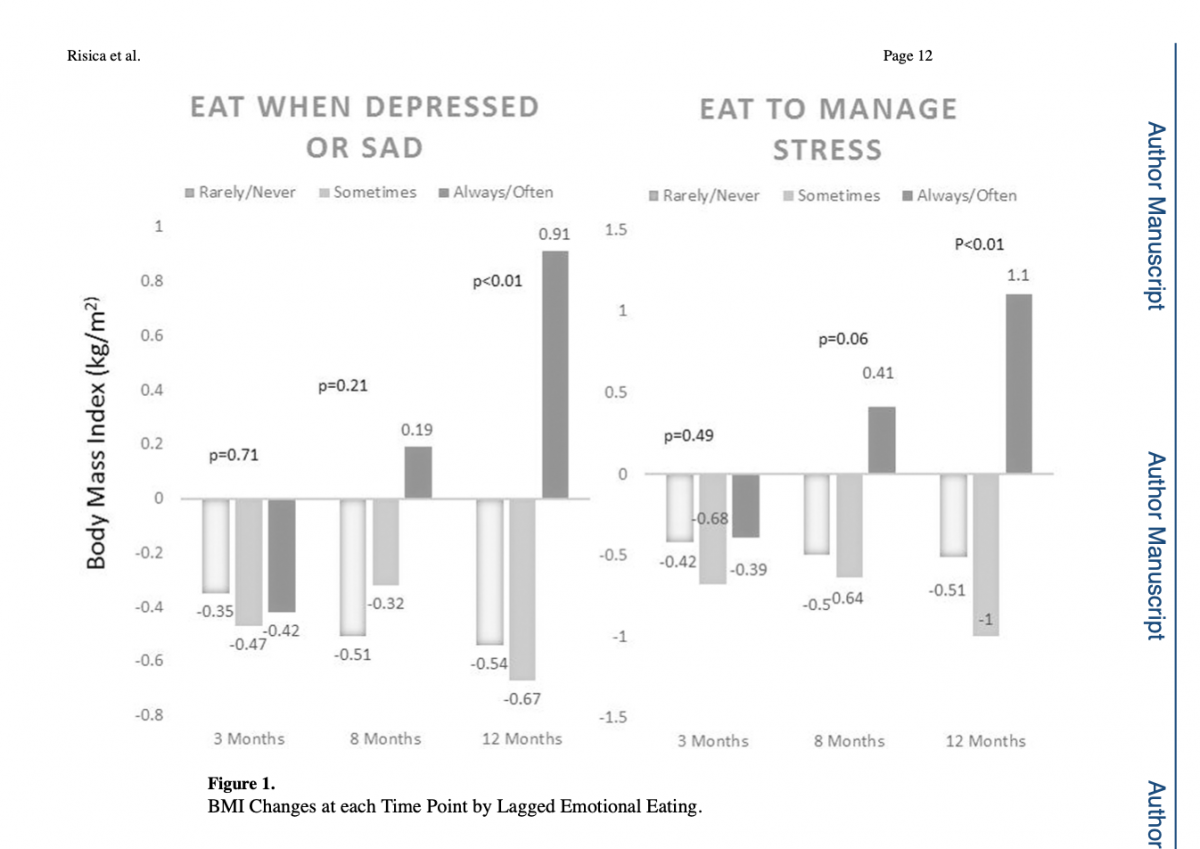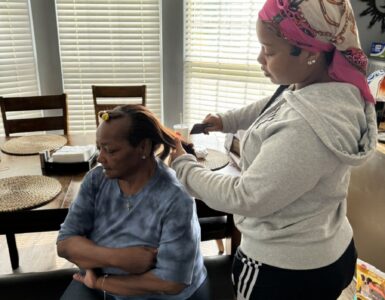By Jordanne Semper-Scott
Whenever you feel down, lonely, stressed, or scared, what does your body tell you to do? What does your mind tell you to do? How do you cope with these thoughts?
These thoughts of fear, stress, and anxiety sound familiar to so many people in our country today, especially when enduring a series of unfortunate, unprecedented events. Many people resort to different forms of coping to help them find answers or guide them through life’s difficult and challenging demands. Some turn to coping mechanisms that society has normalized, but never considered to be dangerous to mental and physical health, such as a bag of Doritos chips or those sweet, divine chocolate chip cookies. For Michelle Petties, any type of dessert would do.
Emotional eating is a type of stress eating that occurs when someone is emotionally triggered during times of stress, anxiety, loneliness or boredom, according to the Mayo Clinic. It can be characterized by how much food a person eats, what types of food they eat and what time they consume it. Turning to food as a source of comfort is normal. However, when one consumes foods that are high in sugar, salt or fat in large, superfluous amounts, that is a call for concern.
Petties knows all so well about the emotional, physical and psychological impacts of emotional overeating. In her memoir, “Leaving Large: The Stories of a Food Addict,” she chronicles how she overcame a 42-year battle with obesity, changed her paradigm about eating and the purpose of eating and how she was able to shed 700 pounds throughout the process.
Many health and wellness experts have offered suggestions for how to prevent one from emotionally eating. Many of these steps or alternatives can prevent one from feeling emotionally triggered to eat, such as keeping a food log, exercising, practicing yoga or meditation, finding an emotional support system to help navigate stress or anxiety, and eating healthier, nutritional foods in small, proportionate, even amounts, the Mayo Clinic advises. The American Academy of Family Physicians suggests speaking to a doctor if you feel that you have an emotional eating problem. In some cases, the doctor might be able to refer you to a registered dietitian or nutrition expert.
But what if someone lived in a community where access to proper health and wellness resources was limited, or their ability to buy fresh produce or nutritional foods was out of the question? Then, what? What other alternatives can be implemented within economically deprived communities to help individuals overcome their emotional eating struggles, especially in Black or African American communities?
“I think the question is something that’s under asked,” responded Shane Perrault, Ph.D., who is a clinical psychologist and founder of African American Marriage Counseling in Greenbelt, Maryland.
“There are a lot of things that contribute to us being less healthy and making less healthy eating choices traditionally,” Perrault said. “We’ve not had access to the best resources when it came to food, which is why we end up eating so many foods that they don’t eat.”
A series of studies examined how Black women from different socioeconomic statuses react to food as a source of coping and the relationship between their daily stress to emotional eating.
Generally, Black Americans are 1.5 times more likely than non-Hispanic whites to be obese, S.H. Thompson wrote in the Journal of Diabetes and Obesity. They are also more likely to live in communities where access to fresh produce and physical activities are limited than for white Americans, according to emotional eating research in the journal Obesity.
However, Black women are reported to have a much higher experience of stress in different forms: racial discrimination, gender discrimination and lower socioeconomic status, the research notes. Black women who live in lower-income communities face greater stress living in communities or households with less nutritional foods than other women who live in food-secure neighborhoods and households.
This causes them to have higher emotional eating and depressive symptoms than white women. The stress they experience is due to limited access to healthy, high-quality nutritious foods, the socio-economic barriers they face, and the racial and gender discrimination that they encounter within the Black community and throughout society.
The stress and burden can affect their weight. Many foods that Black women consume under stress are high in sugar, salt, fat and other addictive qualities. But for most Black women who live in lower economic communities like South Carolina, those types of foods are the most affordable and accessible.

Photo Credit: Chart from “Emotional eating predicts weight regain among Black women in the SisterTalk intervention”
“Food is the center of all of this,” Petties, a food story coash, says. “It doesn’t need to be, but we make it so.”
“What food does is that, especially if it’s good food, it offers a pleasurable distraction from dealing with everyday situations,” she adds. “It’s one reason why I think it’s such [an] issue for Black women.”
In the Obesity study consisting of Black women, whose ages ranged from 18 to 75 years old, 51% of them reported always or often “eating when depressed or sad” when their stress levels were high, in contrast to 22% of women who always or often ate when sad or depressed with lower stress levels.
“Black women, we deal with so many microaggressions, so many disruptions, so many painful things, so many situations, relationships, family, job, kids, everything,” Petties added, . “It’s all coming down every day and that creates pain and discomfort.”
Her statement reflects the findings from the Obesity study displaying that emotional eating behavior was related to not only weight and changes in the Body Mass Index (BMI) among Black women, but also stress, physiologic stress and triggers of stress. In addition, overweight Black women lose fewer pounds when engaging in weight control interventions in contrast to white women or Black men who are overweight.
Petties stated that the weight loss industry is counting on Black women to get the idea of weight loss wrong. “They stay focused on the behavior,” she said. “But what I believe, and what I found peace in, and how I changed, is what I teach others on how to change is to focus on your belief system. If you change your belief system, then your behavior will change. But we have to focus on changing what we believe about food.”
But it doesn’t have to involve only yourself, she said.
“Have a community that supports you in this mission and whatever you want to do,” Petties suggests. “But also find the right kind of support that is going to elevate you in advance. Who is the foundation of how we live right? Who is the foundation of how we live? That body is the one and only body that we would ever have.”





Recent Comments